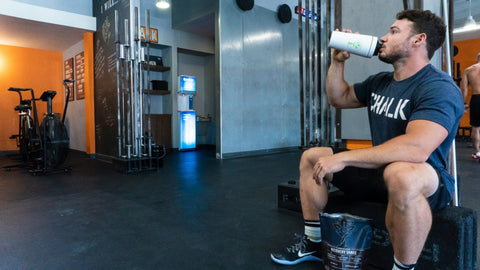Disclaimer:
The information provided in this blog post is for educational purposes only and is not intended as professional advice. Please consult with a certified fitness trainer or healthcare provider before making significant changes to your exercise routine.
Building muscle is more than just lifting weights; it’s a science that involves progressive overload, proper nutrition, and recovery strategies to maximize strength and size. Whether you’re a beginner or an experienced lifter, understanding these key principles will help you make consistent progress.
1. Progressive Overload: The Key to Strength Gains
Progressive overload is the foundation of muscle growth. It involves gradually increasing the demands placed on your muscles over time. Without this, your muscles won’t adapt, and your progress will stall.
Ways to Apply Progressive Overload:
-
Increase Weight: Gradually add more weight to your lifts while maintaining good form.
-
Increase Repetitions: Add more reps within the same weight range.
-
Increase Sets: Additional sets help to increase total training volume.
-
Improve Time Under Tension: Slow down reps to increase the duration your muscles are under strain.
-
Reduce Rest Time: Shorter rest periods can challenge endurance and muscular stamina.
2. Nutrition: Fueling Muscle Growth
Training breaks down muscle fibers, but proper nutrition repairs and rebuilds them stronger. To build muscle effectively, you need to focus on caloric intake, macronutrients, and meal timing.
Macronutrient Breakdown:
-
Protein: Essential for muscle repair and growth. Aim for 0.7-1.0 grams per pound of body weight per day.
-
Carbohydrates: Fuel for workouts and muscle recovery. Choose complex carbs like brown rice, quinoa, and sweet potatoes.
-
Fats: Supports hormone production, including testosterone, which is crucial for muscle growth. Include healthy fats from avocados, nuts, and olive oil.
Best Muscle-Building Foods:
-
Lean meats (chicken, turkey, beef)
-
Eggs and dairy (Greek yogurt, cottage cheese)
-
Fish (salmon, tuna)
-
Whole grains and legumes
-
Nuts and seeds
3. Recovery: The Missing Piece of the Puzzle
Muscle growth happens outside the gym, during rest and recovery. Overtraining or neglecting recovery can lead to fatigue, injury, and stalled progress.
Essential Recovery Strategies:
-
Prioritize Sleep: Aim for 7-9 hours per night to optimize muscle repair.
-
Hydration: Water is essential for nutrient transport and muscle function.
-
Active Recovery: Engage in light stretching, mobility work, or low-intensity activities to enhance blood flow and reduce stiffness.
-
Deload Weeks: Reduce intensity every 4-6 weeks to allow full recovery and prevent burnout.
Bringing It All Together
To build muscle effectively, apply progressive overload, focus on proper nutrition, and prioritize recovery. Strength training is a long-term commitment, but by following these principles, you’ll see steady progress in both size and performance.
Challenge for the Week: Try increasing weight or reps in one of your exercises and focus on hitting your protein target daily. Small changes lead to big gains!
Stay consistent, trust the process, and keep lifting strong!




